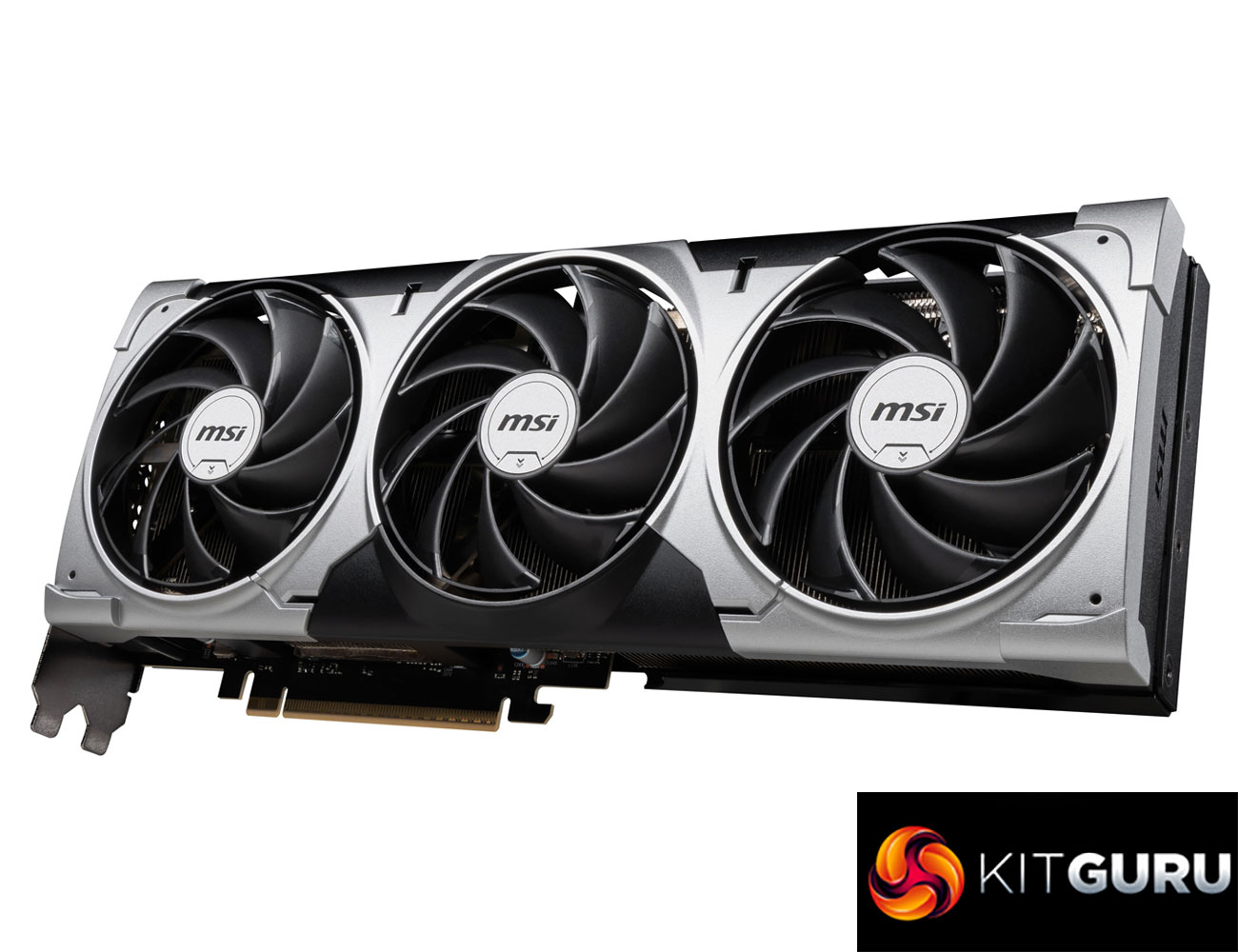As the third RTX 50 series GPU to hit the market, today we have analysed Nvidia's RTX 5070 Ti. It's been fascinating to see what sort of performance is on offer at the claimed £729/$749 MSRP, given the RTX 5080 and RTX 5090 are eye-wateringly expensive.
Its price – and name, of course! – means the RTX 5070 Ti is positioned as the direct successor to the RTX 4070 Ti Super, and the performance gains follow a similar trend to what we saw when comparing the RTX 5080 to the RTX 4080 Super. In short, we're looking at a 12% average performance boost at 4K, while it's 5% slower than the RTX 4080 Super and 7% faster than AMD's RX 7900 XT.
The RTX 5070 Ti is certainly capable of 4K gaming, especially if you enable upscaling, but it wouldn't surprise me if most prospective buyers were planning on pairing it with a high refresh 1440p screen. At that resolution, the relative gains over the 4070 Ti Super do shrink to just 9% on average, while it's 6% slower than the 4080 Super, but still faster than the RX 7900 XT by 5%.
When enabling ray tracing, the RTX 5070 Ti out-performs AMD's current flagship, the RX 7900 XTX, delivering performance that's 32% better, an expected result given Nvidia's dominance in this area. Scaling is otherwise very similar when compared to Nvidia's own GPUs though, as the RTX 5070 Ti is still 12% faster than the 4070 Ti Super at 4K – the exact same margin observed in rasterisation performance.
Those sorts of performance gains gen-on-gen are hardly cause for wild celebration, but I do believe there's more reason to be positive about the RTX 5070 Ti than there was for the RTX 5080. For one, this new Blackwell GPU is 15% slower than its bigger brother, yet the MSRP is 25% lower, so that makes the RTX 5070 Ti the best value 50 series GPU yet.
Additionally, it gets a lot closer to the RTX 4080 Super than the RTX 5080 did to the 4090. It's still not quite there, being 5% slower on average, but the differences are even smaller in certain games – and the thought of circa-4080 Super performance for £729 doesn't sound too bad.
However, I was surprised to see a backwards step when it comes to efficiency. Nvidia officially rates the RTX 5070 Ti for 300W, though over my testing it averaged 283W at 4K. The RTX 5080 only drew 10W more on average however, and in fact I actually saw higher power draw from the 5070 Ti in certain games. I'd theorise that, as a cutdown GB203 die, RTX 5070 Ti could be lower quality silicon so it requires a more aggressive voltage/frequency curve, but it's hard to say for definite.
In any case, power draw being so close to the RTX 5080 while performing worse means that efficiency has regressed, with the 5070 Ti offering performance per Watt that's 13% lower. It's not the direction we would expect, as usually the lower-power GPUs are more efficient, so it'll be fascinating to see how the RTX 5070 (non-Ti) performs in this regard.
Overclocking is a strong point for this GPU, though. I was impressed by how much headroom the RTX 5080 had to offer in my recent roundup, and things are no different for the RTX 5070 Ti. I was able to max out the memory slider in MSI Afterburner, while increasing real-world clock speed to around 3150MHz. This resulted in gains of 12% over stock in Cyberpunk 2077, though that was a best case scenario – A Plague Tale: Requiem saw a 7% fps boost, while that increased to 9% in Hellblade 2. Regardless, that's a heck of a lot more untapped OC potential than we've come to expect in recent years, so it's definitely worth doing if you pick up one of these cards.
Nvidia also points to its new DLSS 4 technology, and specifically Multi Frame Generation (MFG), as a key selling point for the RTX 50 series. Having used it on both the RTX 5090 and RTX 5080 so far, I found the overall experience slightly different with the RTX 5070 Ti, in the sense that I don't believe MFG is a good fit for this card at 4K. That's for the simple reason that the base frame rate is that bit lower than on a 5080, resulting in higher latency. In my experience, MFG works best on the 5070 Ti at 1440p where you will have a much higher base frame rate, so the latency impact is not nearly so problematic. Don't get me wrong, MFG is still a good feature to have, but it's not a silver bullet for the Blackwell card, so don't be expecting to run path traced Cyberpunk at 4K/240Hz on this GPU.
All in all, while clearly not anything special, the RTX 5070 Ti is a solid-enough GPU launch, though it's hard to be more effusive than that. I do think it is a more attractive overall package than the RTX 5080, given it has improved the value proposition by a reasonable amount, offering performance that's more or less at RTX 4080 Super levels, this time for £729 – at least in terms of the MSRP. It also helps that the suggested pricing has dropped compared to the RTX 4070 Ti Super, given that GPU launched at £769 about a year ago. It's not exactly a game-changer, but this new card offers a modest performance boost at a lower price, and that is always a welcome change.
We are again hearing that stock will be extremely limited at launch, however, so attempting to buy a 5070 Ti in the coming weeks will almost certainly be a frustrating experience. Early retail listings have also brought the MSRP itself into question, with both Best Buy and Micro Center seeing inflated pricing ahead of launch – we were told this Ventus 3X model is an MSRP card, for instance, but Micro Center has it for pre-order at $910.
We would typically expect to see inflated pricing around the initial launch period, but we've also been told to expect supply to pick up as we head into March, so fingers crossed that will help stabilise prices. It goes without saying that the overall value and appeal of the RTX 5070 Ti would diminish significantly if real-world pricing is consistently 20% higher than MSRP, but that's something we will keep a close eye on over the coming weeks and months.
In any case, anyone considering this calibre of GPU may also want to wait and see what AMD's RDNA 4 lineup will bring to the table, with an announcement set for February 28th. We anticipate AMD will introduce a competitor in this market segment, but we'll have to wait and see what exactly materialises.
RTX 5070 Ti is launching at retail tomorrow, February 20th, with prices starting at £729/$749. Nvidia sent the following UK retail links for cards which should hit the MSRP:
Pros
- Capable GPU for 1440p and 4K gaming.
- Some improvement to cost per frame and overall value versus the RTX 4070 Ti Super.
- Best value 50 series GPU yet, being 15% slower but 25% cheaper than the RTX 5080.
- £40 price drop compared to the RTX 4070 Ti Super.
- Certain productivity benchmarks showed bigger-than-expected performance improvements.
- Solid overclocking headroom.
- DLSS 4 has improved Ray Reconstruction and Super Resolution scaling.
- Multi Frame Generation enables higher frame rates than would otherwise be possible.
Cons
- Only limited gains over RTX 4070 Ti Super.
- Efficiency has taken a step backwards compared to the RTX 5080.
- RX 7900 XT is competitive for rasterisation (but falls off in basically every other area).
- Prospective buyers may want to wait and see what RDNA 4 can bring to the table.
KitGuru says: The gains may not be particularly exciting, but the RTX 5070 Ti is both faster and cheaper than its direct predecessor (at least in terms of MSRP), and that is a good thing. It will be fascinating to see how AMD plans to compete in this market segment over the coming weeks.
 KitGuru KitGuru.net – Tech News | Hardware News | Hardware Reviews | IOS | Mobile | Gaming | Graphics Cards
KitGuru KitGuru.net – Tech News | Hardware News | Hardware Reviews | IOS | Mobile | Gaming | Graphics Cards




